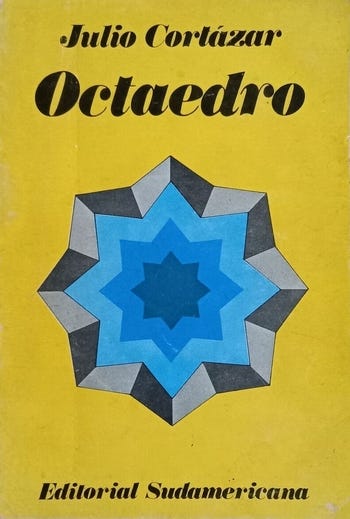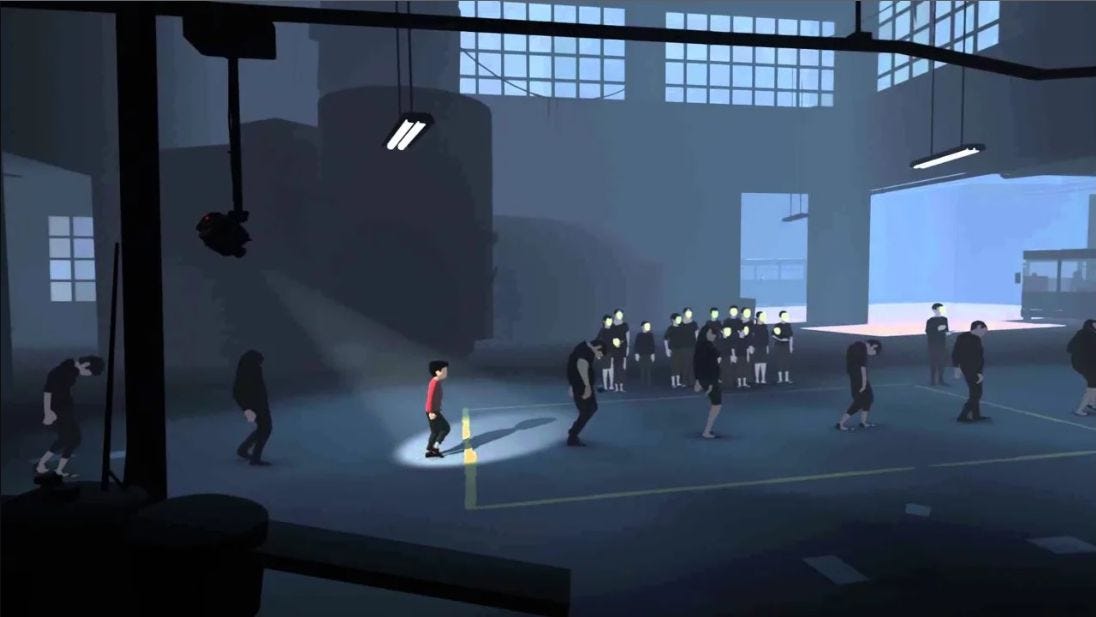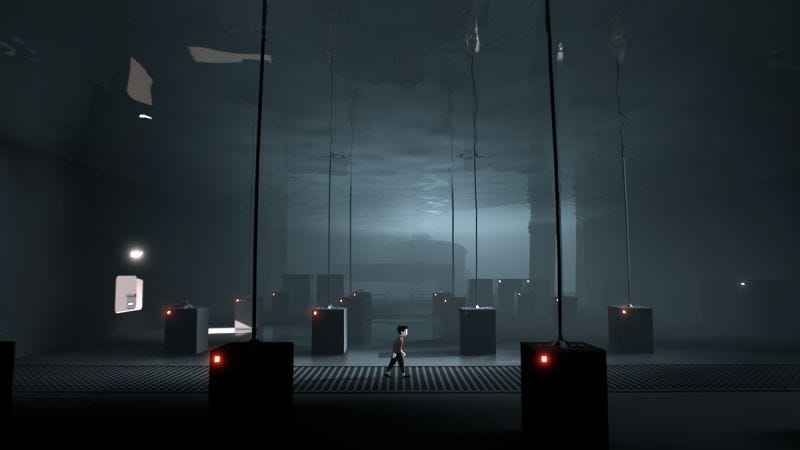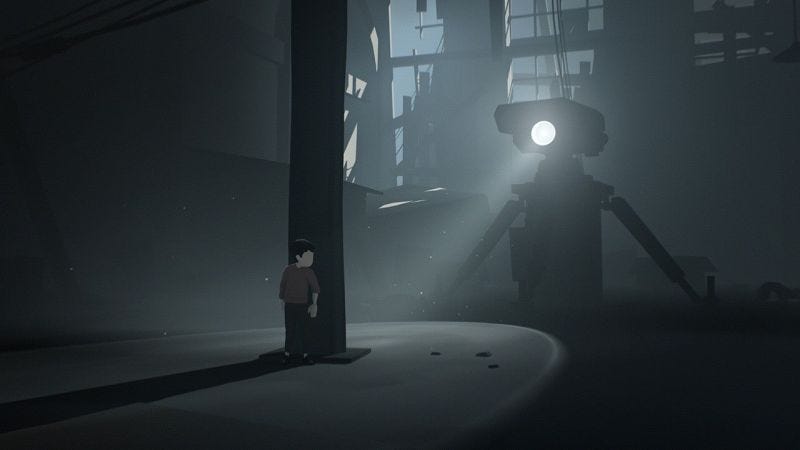Inside and a Cortázar Short Story
How much does a title’s meaning shape the meaning of a work? #literature #videogame
Welcome back to Artcade, your weekly spoiler-free appointment with art and video games.
Let’s talk for a moment about the name of this newsletter. I have to admit that I really love the name Artcade, and until recently, I thought it was quite original. But then, while browsing the Bitmap Books website, I discovered a book called Artcade dedicated to arcade cabinet art. It only feels right to mention them and recommend their books—I have the one about the Spectrum, and I love it—they’re a real treat for enthusiasts.
And now, the moment we’ve all been waiting for: the intro ends and today’s episode begins. Enjoy the read!
Imagine my surprise when I found out that Ottaedro—one of my favorite books from my youth—wasn’t published in English.
Let’s clear things up: Ottaedro is the title of the book in its Italian edition, Octaedro is its Spanish counterpart (the language used by the Argentine-born writer), and its meaning is octahedron.
It was only after some digging that I discovered the short stories from Octaedro were included in another collection—rare, though not impossible to find—released in 1980. Titled A Change of Light and Other Stories, it was translated by Gregory Rabassa.
That forced me to make a choice: either scrap this episode or translate the passages I wanted to share from the Italian version. Since you’re reading these lines, you already know which path I took. Bear in mind that the quotes below are the result of a double translation (Spanish to Italian, then Italian to English), so they can’t compare to Rabassa’s work. If you can get a hold of A Change of Light and Other Stories, I highly recommend it: Cortázar is a master of the short story form.
The protagonist of the story (don’t worry, no-spoiler rule always applies) rides the subway looking for a human connection. But not just small talk between seatmates: his method is more elaborate. If someone meets his gaze reflected in the subway window, only then does the second part of his plan begin.
Now that I’m writing this for others, it could have just as easily been roulette or the racetrack, but money wasn’t what I was after. At some point, I began to sense—decide—that a subway window might deliver the answer, a brush with a sort of happiness, right here where everything happens under the sign of the most relentless rupture, within this underground window of time, unavoidably drawn and confined between one station and the next.
When this contact does happen, the protagonist pours all his hope for happiness into it.
My rule of the game was maniacally simple—beautiful, stupid, and tyrannical […].
Julio Cortázar [1974] Manuscript Found in a Pocket, from the collection Octahedron [Manuscrito hallado en un bolsillo, Octaedro] [Literature] [Short Story] Unpublished
A title in a literary work always plays a significant role. In Manuscript Found in a Pocket, Cortázar takes this principle to the extreme: only at the end of the story does the title truly reveal its meaning.
If you find this style of storytelling fascinating, know that video games can use it too. Let’s see how.
Playdead [2016] Inside [Video Game] [Cinematic-platformer] [3½ Hours ] [Xbox One] [Windows, Xbox Serie S/X, PlayStation 4/5, iOS, Nintendo Switch, macOS] Playdead
Inside is the second game from Playdead, the creators of Limbo. It’s the kind of game some now call a cinematic platformer, because alongside its classic platforming mechanics—jumping and progressing through levels— it features a highly narrative, choreographed dimension.
In this dystopian world, our character is completely lost, just as we are, trying to understand the reality around him. Naturally, the rest of the game’s world wants to catch us and take us out. Otherwise, why call it dystopian?
A key part of its beauty is that Inside, much like Cortázar’s short story, only reveals its true significance at the end. It’s a gorgeous, not-too-long game that deserves another look. If you’ve never tried it, you’re in luck—you still can play it for the first time.
Information Desk:
After Limbo and Inside, the Danish studio Playdead is working on its third project—and they’re hiring.
Want to watch Inside like a movie? Here’s a two-hour walkthrough.
My last two coins
Artistic gestures—being them technical or expressive choices—sometimes are specific to a certain art form, but other times they cut across different media and can be translated, say, from literature to video games. That’s exactly what Octaedro and Inside did: both mysterious, both telling a dark story, both revealing a lot from their titles alone, yet withholding the tools to decipher them until the very end.
I enjoy writing Artcade for reasons like this: not to spoil surprises, but to give you the chance to experience two different surprises that share the same artistic gesture. What a blast!
Until the next episode, ciao!





